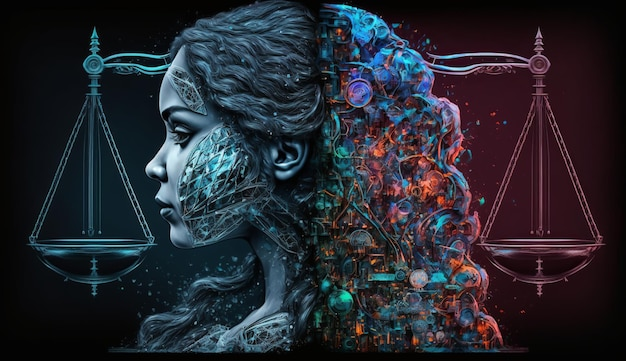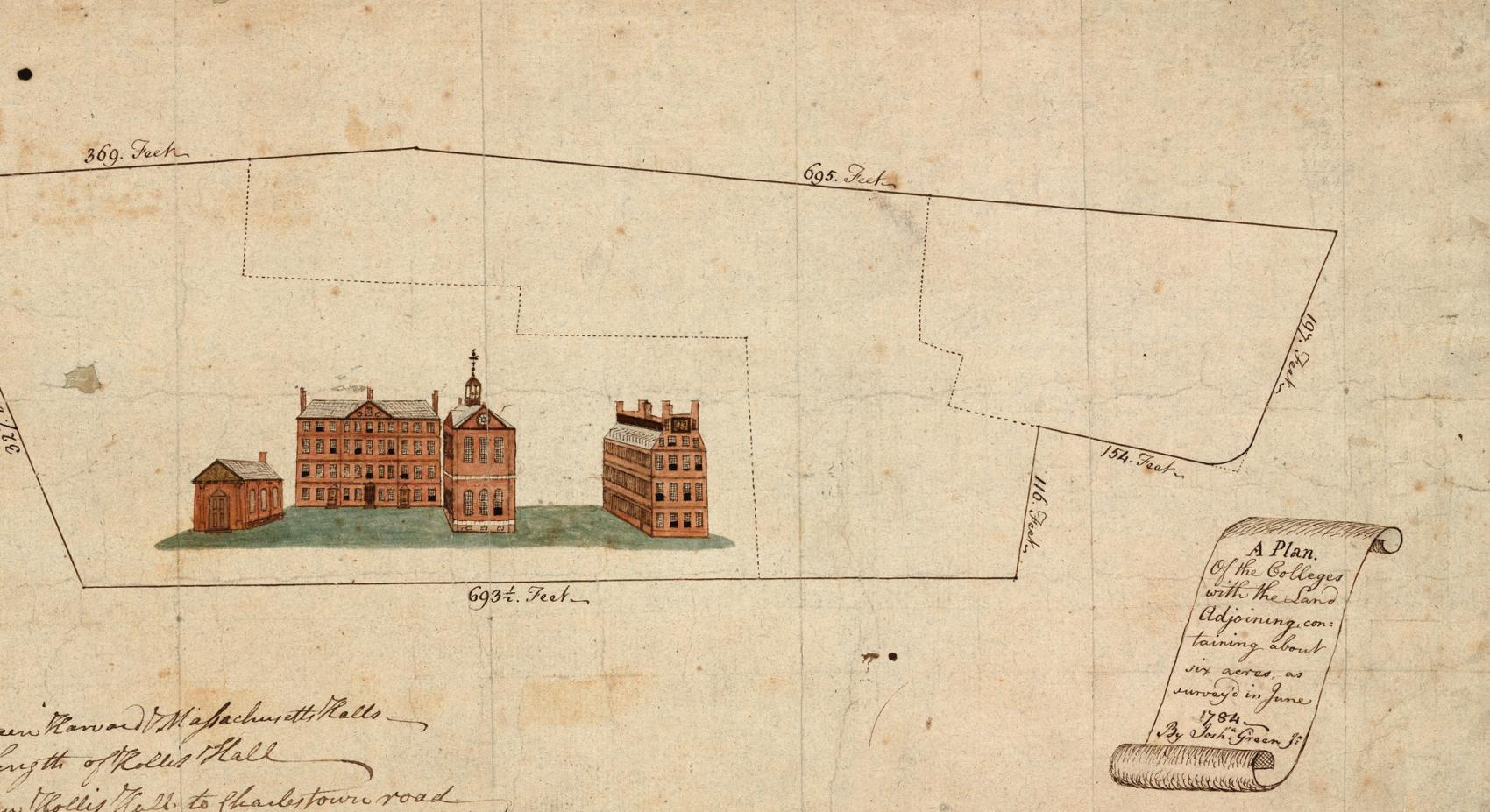AI and social justice are increasingly intertwined in today’s digital landscape, urging us to reevaluate the ethical implications of technology in our lives. The future of AI presents both exciting possibilities and pressing concerns, particularly when it comes to equity and fairness. Renowned sociologist Ruha Benjamin emphasizes that the visions of tech elites for an AI-powered tomorrow often mask self-serving interests rather than altruistic intentions. Despite the allure of efficiency, technologies such as facial recognition and automated decision-making can perpetuate systemic inequalities and injustices faced by marginalized communities. As we navigate the impact of AI on society, it becomes imperative to consider how tech ethics can foster a more just and inclusive digital future.
In exploring the intersection of automation and equity, it is crucial to recognize how technology influences social structures. The dialogue surrounding machine intelligence and equity highlights the urgent need for a more ethical approach to technological advancement. Thought leaders like Ruha Benjamin challenge us to scrutinize the narratives surrounding digital tools and their societal ramifications. By acknowledging the often-hidden biases within these systems, we can strive for a more equitable tech landscape, ensuring that innovations serve all members of society. This examination not only pertains to the ethics of technology but also calls for a reimagining of our collective aspirations within this digital future.
The Role of AI in Shaping Future Societies
The future integration of artificial intelligence into society has raised both hopes and concerns. As Ruha Benjamin highlights, AI presents an opportunity to radically rethink how we envision societal progress. At its best, AI could facilitate smarter cities, efficient healthcare, and enhanced educational tools. However, this optimistic picture must be balanced with a critical eye on the underlying motives driving technological development. The narratives offered by tech elites often focus on idealistic futures powered by AI, yet they might obscure the economic and ethical implications that come with such rapid advancement.
Moreover, an informed dialogue about AI’s role must include discussions on equity and social justice in technology. AI’s potential benefits can only be realized if they are pursued with an emphasis on fairness. As we consider the future of AI, it becomes essential to ask: who benefits from these technologies? Ensuring that marginalized voices are included in the AI conversation is not just an ethical obligation but a necessary step towards innovation that serves all of humanity.
AI and Social Justice: Rethinking Tech Ethics
Ruha Benjamin provocatively argues that the current trajectory of AI development often perpetuates existing inequalities rather than alleviating them. The distancing of tech elites from the social realities faced by the marginalized suggests a need to rethink our approach to tech ethics. Instead of viewing AI as an impartial arbiter based on data and algorithms, we must understand that these systems can amplify biases embedded in their design and implementation. For instance, facial recognition systems, while marketed as efficient solutions, have resulted in numerous injustices, particularly against communities of color.
Embracing a framework of social justice in technology means actively dismantling the existing power structures that govern AI deployment. It involves not just advocating for diverse representation in tech but also fundamentally reconsidering what we prioritize in technological advancement. Benjamin’s call for reimagining AI extends beyond critiques; it encompasses a vibrant vision of reshaping technology to navigate societal challenges, breaking free from traditional narratives that prioritize profit over people.
The Dangers of AI: A Critical Perspective
The dangers of AI extend beyond technological failures; they pose significant societal risks. Ruha Benjamin’s warnings about the oppressive potential of AI technologies underline a critical truth: algorithms are shaped by the biases of those who create them. This reality can lead to harmful consequences, such as automated systems making life-altering decisions with little accountability. These concerns echo the echoes of the past, where technologies that were purportedly neutral ended up reinforcing existing societal hierarchies. Understanding these dynamics is key to creating a future where AI enhances, rather than endangers, human rights.
Moreover, Benjamin’s critique on AI’s moral connotations challenges the narrative that views technology through a simplistic lens of innovation versus tradition. Just like eugenics once masqueraded as scientific progress, today’s AI systems can hide behind claims of efficiency to justify discriminatory practices. It’s crucial to champion transparency in tech development, ensuring that ethical considerations are woven into the fabric of AI systems. Only then can we mitigate risks and protect vulnerable populations from the unintended consequences of emerging technologies.
Imagination and Creativity in Technology Development
Ruha Benjamin emphasizes the need for creativity and imagination in rethinking technology’s role in society. Instead of solely focusing on technological fixes, we must also engage with the arts and humanities to cultivate a more holistic understanding of human experience. Incorporating diverse perspectives enriches tech development, allowing for innovative solutions that are not just effective but also ethical. Universities and institutions play a crucial role in fostering this interdisciplinary approach, which could lead to more inspired and inclusive technological advancements.
By inviting creativity into the tech sphere, we open the door for a broader dialogue about the kind of future we want to build. Revolutionary ideas are often born from the intersection of various fields—technology, art, sociology, and more. This collaboration can lead to groundbreaking solutions that address social issues at their core. As Benjamin posits, envisioning a world beyond profit-driven motives and systemic oppression requires an imaginative leap that challenges us to think beyond what is currently deemed possible.
Empowering Marginalized Voices in AI Development
Benjamin advocates for a shift in who gets to participate in the conversation about AI and technology. Empowering voices from marginalized backgrounds is critical to ensuring that innovation serves the interests of all, not just a privileged few. By including diverse perspectives in the design and application of AI, we can create systems that reflect a more equitable society. This approach aligns with the principles of social justice in technology, emphasizing the importance of community involvement in shaping tools that affect everyday lives.
Moreover, when marginalized groups actively participate in AI development, it challenges entrenched assumptions about intelligence, competence, and capability. Their insights are invaluable in creating technologies that genuinely address societal needs and inequalities. This collective effort fosters a sense of ownership over technology, transforming it from an alienating force into a powerful means of empowerment. As we look towards future AI landscapes, celebrating and integrating diverse voices will be essential to building just and inclusive societies.
The Ethical Implications of AI Deployment
The ethical implications of deploying AI technologies are profound and complex. Ruha Benjamin warns that systems often touted as innovations can inadvertently perpetuate injustices. The reliance on data-driven solutions can obscure the very human values that technology should serve. As we navigate the implications of AI on society, it’s vital to prioritize ethics and accountability, ensuring that technological advancements do not come at the cost of basic human rights.
Institutions and developers must grapple with the ethical dimensions of their work, actively seeking to understand and address the biases inherent in AI systems. By fostering a culture of ethical decision-making and responsibility in tech development, we can begin to ensure that AI serves as a tool for social good rather than a weapon of discrimination. This commitment to ethical principles must guide the future trajectory of AI, reflecting a dedication to justice in technology.
Building Trust in AI Systems
Building public trust in AI systems is imperative for their successful integration into society. Ruha Benjamin notes that skepticism surrounding the motives of tech giants can erode confidence in technologically advanced solutions. Transparency and accountability must be prioritized to ensure that communities feel secure in the technologies they adopt. By providing clear insights into how AI systems operate and the data they use, developers can assuage fears and foster a greater sense of collaboration between society and technology.
Involving the public in discussions about AI governance is also crucial for nurturing trust. Engaging communities in dialogue about how AI impacts their lives and futures allows for more informed decision-making and a more inclusive technological landscape. Building trust is not simply a matter of improving communications; it requires a genuine commitment to addressing public concerns and demonstrating the positive potential of AI for social transformation.
Reimagining Technology for a Just Future
Reimagining technology for a just future necessitates a fundamental shift in perspective. Ruha Benjamin invites us to envision not only improvements to existing systems but a complete transformation of how technology interacts with society. This ambition challenges tech leaders to step beyond their comfort zones and embrace innovative solutions that prioritize well-being over profit. Such reimagining calls for revolutionary creativity and a willingness to radically rethink operational norms within the technology sector.
As we consider the future impact of AI on society, we must foster a vision that transcends current limitations and addresses systemic injustices. Engaging in this critical dialogue enables us to harness technology in a way that dismantles oppressive structures rather than bolstering them. It requires asking bold questions and envisioning a future that prioritizes humanity above technical efficiency. By doing so, we can cultivate a more equitable society that leverages technology for the collective good.
The Intersection of Policy and Technology
The intersection of policy and technology is a pivotal arena for ensuring that AI serves the public interest. Ruha Benjamin underscores the necessity for proactive governance frameworks that prioritize ethical and equitable technological practices. As AI continues to evolve, policymakers must grapple with how to regulate systems that can have far-reaching implications for society. Crafting comprehensive policies that address transparency, accountability, and social equity is essential to mitigate the risks associated with AI deployment.
Moreover, collaboration between technologists and policymakers is critical for crafting informed regulations that reflect the complexities of AI technologies. Policymakers can leverage expert insights from developers to create guidelines that safeguard against misuse while still fostering innovation. This partnership is vital to creating a robust framework that addresses the ethical implications of AI, ensuring that technological advancements align with societal values and promote a just future.
Frequently Asked Questions
How does AI impact social justice in technology according to Ruha Benjamin?
Ruha Benjamin highlights that AI technologies often perpetuate oppression rather than alleviate it. For instance, systems like facial recognition can lead to false arrests, disproportionately affecting marginalized communities. This misalignment raises critical concerns about the role of AI and social justice in technology, emphasizing the need for ethical frameworks that prioritize equity.
What is the relationship between the future of AI and social justice?
The future of AI is intertwined with social justice, as advancements in technology can either support or undermine equitable outcomes. Ruha Benjamin argues that without incorporating social and historical context into AI development, these technologies may replicate past injustices, similar to the eugenics movement. Thus, envisioning a just future requires reimagining AI to serve collective good.
What does Ruha Benjamin suggest about tech ethics in AI development?
Ruha Benjamin calls for a re-evaluation of tech ethics in AI development, arguing that those in power often prioritize self-interest over the public good. She insists on the importance of including diverse perspectives in the conversations about AI’s role in society to ensure technological advancements contribute positively to social justice.
Why does Ruha Benjamin urge for creativity in discussions about AI and social justice?
Benjamin advocates for creativity as a necessary component in discussions about AI and social justice, encouraging imaginative approaches that challenge current narratives. She believes that by envisioning alternative futures beyond oppression and surveillance, society can foster innovative solutions that truly promote equity.
How do algorithms in AI relate to social justice issues?
Algorithms in AI can exacerbate social justice issues by systematically disadvantaging marginalized groups. Ruha Benjamin argues that relying on mathematical decision-making can overlook the complex social realities, leading to outcomes that favor the privileged while harming those who are already marginalized.
What are the dangers of viewing AI as morally neutral technology?
Ruha Benjamin warns that viewing AI as morally neutral obscures its impact on social justice. This perspective can lead to complacency in addressing the inherent biases and societal implications of AI systems, ultimately reinforcing existing inequalities and injustices.
What kind of knowledge does Ruha Benjamin believe is necessary for equitable AI development?
Benjamin emphasizes the need for interdisciplinary knowledge in AI development, advocating for the inclusion of humanities perspectives alongside technical expertise. She believes this approach can foster a more holistic understanding of how technology interfaces with societal issues, ultimately supporting social justice.
How can we reimagine AI technologies to align with social justice goals?
To align AI technologies with social justice goals, Ruha Benjamin suggests radically rethinking how we design and implement these systems. This involves prioritizing creative, ethical approaches that engage diverse voices and address the deeper societal impacts of AI, moving beyond mere harm reduction toward transformative visions.
| Key Points | Details |
|---|---|
| Radical Future Imaging | Ruha Benjamin encourages citizens to envision a different future, contrasting with the dystopian visions often presented. |
| Critique of Tech Elites | She argues that tech leaders often prioritize their self-interest over the collective good. |
| Consequences of AI Technologies | AI tools can exacerbate oppression through biased algorithms, leading to issues like false arrests due to facial recognition. |
| Social and Historical Depth in AI | Benjamin emphasizes the importance of understanding social context in developing AI, criticizing purely mathematical approaches. |
| Reimagining Public Goods | She challenges the notion that public goods are impractical compared to tech innovations. |
| Focus on Arts and Humanities | Benjamin calls for an integration of creativity in education to foster more equitable solutions. |
| Vision Beyond Current Systems | She invites a rethinking of societal structures beyond traditional systems of policing and surveillance. |
Summary
AI and social justice are deeply intertwined as experts like Ruha Benjamin push for a future that is not dominated by technology’s potential pitfalls but instead focused on equitable societal structures. Benjamin’s insights challenge the prevailing notion that AI technology alone can solve social issues. By calling for a collaborative effort that includes the arts and humanities, she highlights the need for diverse perspectives in addressing human welfare and urges a reconceptualization of our existing frameworks.



MOST COMMENTED
Culture News
Katie Kitamura: Exploring Horror in Midlife Fiction
Culture News
Canine Empathy Research: Insights from Harvard Experts
Culture News
Introductory Humanities Courses: Engaging First-Year Students
Culture News
Canine Research: Exploring the Human-Dog Connection
Culture News
Introductory Humanities Courses Engaging First-Year Students
Culture News
Afro-Cuban Music: Yosvany Terry’s Cultural Explorations
Culture News
Artificial Intelligence in Photojournalism: A New Hope